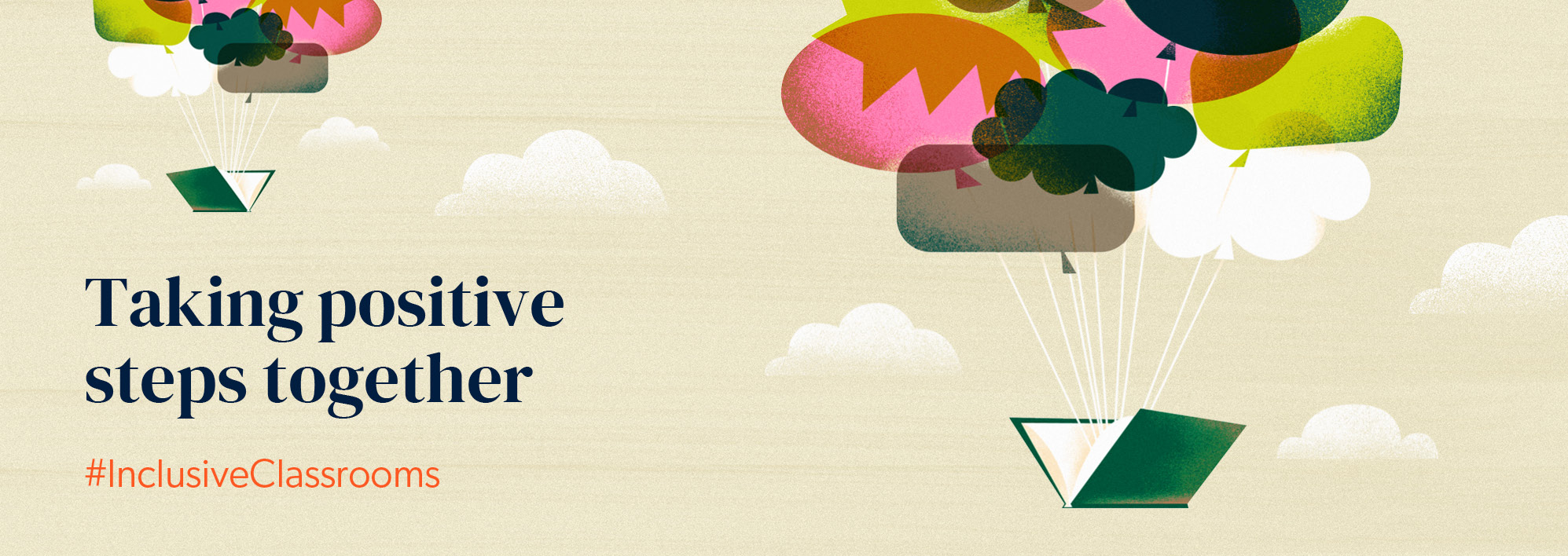As a GCSE or A-Level psychology teacher, it can be scary to say “I don’t know” in response to a student’s question. This is even scarier if the question relates to a sensitive topic, such as race, that is not explicitly covered in the curriculum. You may be tempted to avoid a difficult conversation and re-focus the lesson on the ‘core’ content needed for exams. However, an unwillingness to venture into the unknown and uncomfortable can force students from People of Global Majority (PoGM) backgrounds to leave their cultural knowledge outside of the classroom in order to pass exams. Decolonising psychology is about interrogating, dismantling and transforming it, making it a subject that empowers people from all backgrounds. It is about saying, “I may not know the answer, but let’s think about this together” or, if a student shares a difficult experience, “I hear you and want to work with you to change things.”
That is why a first step to decolonising the GCSE and A-Level psychology curriculum is to invite discussions on race, and to do so with compassion. Compassion can be defined as “a sensitivity to the suffering of self and others (and the causes of that suffering) with a deep commitment to relieve it, prevent it from returning and promote wellbeing” (Dale-Hewitt & Irons, 2015). This definition has two key elements: engagement with suffering and a commitment to change. In this sense, ‘compassion’ is an action rather than an emotion.
What can we do as educators? Below, I explore a few practical strategies that teachers can implement to help champion a decolonial and compassionate approach.
Strategy 1: Use language intentionally
Originally, I titled this strategy ‘be mindful of language.’ However, I feel this contributes to the problem where individuals from white backgrounds feel uncomfortable talking about racism, due to a fear of ‘saying the wrong thing’. Using language intentionally is about saying what you mean to say when discussing the uncomfortable. Avoid euphemistic speech. For example, avoid saying ‘bias’ when what you really mean is racism.
Strategy 2: Embrace difficult dialogue
Once you have created a classroom environment that permits students to talk about racism, sexism and other -isms, discussion and reflection will follow naturally. Do not be afraid to encourage this, as these ‘micro’ encounters and conversations help to engage students from all backgrounds in important topics. A good practical exercise is to get students to do a ‘privilege walk’ to explore issues of power and privilege in psychology.
Strategy 3: Encourage critical thinking
Provide a safe environment for pupils to challenge psychological research. Go beyond the standard critiques of ecological validity and response bias, and instead encourage students to consider the impact and effect aspects of social and personal identity can have on research outcomes. These aspects, such as race, gender, education and sexuality, have been summarised as ‘Social GGRRAAACCEEESSS’ or ‘Social Graces’ for short (Burnham, 1993). You can also ask students to interrogate how WEIRD (Western, Educated, Industrialised, Rich, Democratic) psychological research can be. For example, the majority of participants in research published in top psychological journals are ‘westerners’ and more likely to be from white backgrounds (Arnett, 2008). Ask students about the impact this has on the effectiveness of psychological therapies for PoGM students.
Strategy 4: Tell students why you selected the materials for a lesson
We know that curriculum reform is a long and arduous process and that change does not come about overnight. Whilst campaigning for change is necessary, it is also important to inform students why you are teaching them the topics that you have selected for lessons, otherwise the implicit assumption is that these topics are the most important or that they represent all there is to know, which is often not the case.
Strategy 5: Bring in the experts
You are probably learning along the way, and so are not expected to know everything in regard to all forms of systemic oppression. It is ok to say, “I don’t know, but I will try to find out” in response to a challenging question. Many teachers take this one step further and invite guest speakers or lecturers. Students often find this shake-up of routine impactful and memorable and benefit from hearing voices from outside the school environment.
References
Arnett, J. J. (2008) The Neglected 95%: Why American Psychology Needs to Become Less American. American Psychologist, 63(7), 602-614
Burnham, J. (1993) Systemic supervision: The evolution of reflexivity in the context of the supervisory relationship. Human Systems, 4, 349-381
Campbell-Stephens, R. (2020, December 9). Global Majority: we need to talk about labels such as ‘BAME.’ LinkedIn. Retrieved April 5, 2022, from https://www.linkedin.com/pulse/global-majority-we-need-talk-labels-bame-campbell-stephens-mbe/
Dale-Hewitt, V. & Irons, C. (2015) Compassion Focused Therapy. In: Dawson, D. & Moghaddam, N. (eds.). Formulation in action: applying psychological theory to clinical practice. Walter de Gruyter GmbH & Co KG
Webb, L. (2021, August 10). Talking about social graces improves social work practice. The Frontline. Retrieved May 16, 2022, from https://thefrontline.org.uk/talking-about-social-graces-improves-social-work-practice/#:~:text=Shortened%20as%20’social%20graces’%2C,privilege%20and%20power%20in%20society.
Sarah Atayero (@sarahatayero) is a British Nigerian trainee clinical psychologist at Royal Holloway, University of London and a director of the BiPP Network, an organisation that prioritises the advancement and representation of Black and Minority Ethnic backgrounds in psychiatry and psychology. Prior to this, Sarah read for a degree in Experimental Psychology at the University of Oxford and later completed an MSc in Affective Disorders at King’s College London.
Sarah has campaigned, written and published extensively on Black British individuals’ experiences of the UK mental health system. She has written for The Psychologist, Black Ballad, gal-dem and the recent 2022 anthology The Colour of Madness. More about her work can be found on her website.

